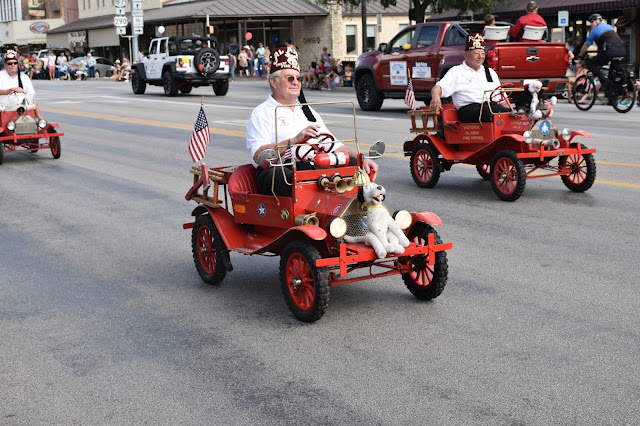A few weeks ago during Sarge's stint as one of the 12 Angry Men, I alluded to the fact that I also had done my duty by serving on a jury. It wasn't a civic duty however, but one of a military nature. The title of this post? I could have gone with "You Can't Handle the Truth!" Or "A Jury of His Fears," or some other play on a legal term, but that just didn't sound right. Many of you probably realize that's part of the Enlisted Oath of Office. A pledge that wasn't kept.
Back when I was stationed aboard CVN-70, the USS Carl Vinson,
(nope, still can't do all caps for ship names- too much like shouting), I was selected to serve on a jury for a Court Martial. I don't remember receiving a jury summons, or going through the
voir dire process though. More like my boss said "Hey, Tuna- get your ass down to the NLSO on Monday morning, 0730 sharp." So I guess I was
selected, just not in the traditional sense, but that's the military for you, not that I was expecting anything different. By the way, the NLSO is the Navy Legal Service Office- a shore-based "law firm" per se, where one can get a power of attorney, a will, or Court Martial-ed.
I'm sure I just made up that verb.
At that point in my career, I didn't have a ton of experience with the Navy justice system. Fortunately none of my sailors had ever gone to Captain's Mast, but I did have the misery of sitting on an Administrative Separation Board. We had a sailor who couldn't figure out how to get up and make it to work on time. After a dozen second chances and being sent to Mast twice, my skipper had had enough and recommended the Navy fire his lazy butt.

It was a slam dunk issue, with really only the type of discharge up for discussion. I suppose the board made up of one Lieutenant Commander and two Lieutenants could have recommended retaining him, but he was a really lousy Sailor and the Skipper's wrath would have kept us off the flight schedule for the rest of the millennium. His legal representation was a JAG officer who probably finished Justice School 30 seconds before the board, but he did a pretty good job defending the kid. He called two witnesses- his Chief and his Division Officer, and through some miracle of salty jurisprudence he was somehow able to get both of them to admit that when he was at work, he did his job well. And other than his epic tardiness, he had an unblemished record. As it turned out, we took a little bit of pity on him and gave him an Other-than-Honorable Discharge, vice the Big Chicken Dinner (Bad Conduct Discharge) that the prosecution had pushed for. The Defense's point about the rest of his service made an impact on me and I convinced my fellow board members that Sailors who did far worse have received BCDs and our dirtbag didn't compare to those. I took some grief that I was a bleeding heart, but I figured the kid was better off with his GI benefits than without, and so was society.
That CO was tough, but fair, for the most part. He had taken one of our Anti-Submarine Warfare Systems Operators (AW) to mast for DUI during an All-Hands Call in the hangar. This was a super squared away Sailor who I knew well, and respected even more. We had all spent countless hours in the jet with him in the back left seat, tracking subs or conducting surface radar surveillance, so that one was tough to swallow.
A couple months prior, the Skipper had busted another Sailor for DUI. This kid was a below average worker and had cussed out the base cop who had stopped him. He happened to be Hispanic. Afterwards, someone called the Navy I.G. claiming that the CO was taking more Black and Hispanic Sailors to Mast. While that was pretty much bogus, we did have a large percentage of minorities, in the squadron, a majority really, so we had a disproportionate number of them getting punished in relation to other races.
However, the sting of that accusation was there, which wasn't good for our intrepid AW, who was White. At Mast, the Skipper read a Naval Message received that very morning which would have promoted him to E-6, then tore it up and busted him down to E-4. We all thought that was a huge over-reaction to the past complaint, especially because he blew a .04, hadn't drank for well over a hour, and was stopped for not using his turn signal while driving a very drunken sailor back to his barracks. He was also extremely cooperative during the stop. The base regulation was that .01 was impaired so his .04 was technically impaired, but this AW wasn't, even passing the Field Sobriety Test, just not the BAC check.
A few of the senior JOs in the squadron asked the CO about it later and he said that he held our AWs, each of which had Aircrew Wings, a Secret or Top Secret security clearance, and who all happened to be White, to a higher standard. While we understood, upon further reflection that somewhat proved the spirit of the original I.G. complaint. Fortunately the AW recovered and later retired as a Navy Chief.

However, I lured you in with the promise of my Court Martial story. It was for a Navy Senior Chief (E-8) who was accused of sexual harassment and fraternization. Apparently he had plenty of opportunity. Every new Sailor- Air Wing or Ship's Company- spent a couple of months TAD, doing some sort of ship's servicing. Some guys go to the ship's laundry, some to the galley or the wardroom, mess cranking as it was called, and the females? Everyone knew the racket the Chiefs were running, sending all the attractive ones to work in the Chief's Mess. We had a young Seaman who, according to kid in my Division, she was "A Total Smokeshow,"
but I
never noticed-of course. So we all knew where she'd be working when it was her turn.
It was a Special Court Martial- with a Judge, Prosecution and Defense Attorneys, and a panel of three officers. The prosecution rolled out no less than seven witnesses who claimed the SCPO had harassed them. Sometimes by pinning them to the wall to some extent, putting his hand on the wall next to their head and leaning in on them as they were working not, although not actually touching them. He was definitely invading their personal space though and getting far to close for their comfort. His defense was that he was only innocently talking to them,
now understanding that he was being a little
too friendly and that they misunderstood his actions. Another Sailor had encountered him coming up a ladder after she had already started coming down, thereby putting his face close to her chest once she stopped. The more egregious offenses were three of them who claimed to have been to his house, and two of which claimed to have had sex with him.
His defense had completely denied the more serious charges, although he admitted to having one of the women over to his house. This was explained as him being proud of his home wanting to show it off, and inviting her over was to give her a break from the ship. Witnesses for the defense included a former Chief, a Nuclear Machinist Mate who was no longer in the Navy, now working for Intel Corp. down in Portland. And two female Sailors, one of which had been to his home, but each testified that there had been no harassment. The former Chief was his friend who stated that he had never observed any untoward behavior.
When it came time for deliberations, we realized we had somewhat of a
he said, she said case, his word against theirs. Mitigating factors included what I thought was a weak defense regarding his too-friendly behavior, one of the prosecution's witnesses whose story did not make sense when cross-examined, making her not very credible.
We briefly discussed whether or not any of the prosecution witnesses could be lying or had truly misunderstood his actions. We couldn't find a reason why they would have lied and we didn't believe his excuses. The fact that there were seven witnesses and each had similar experiences with him gave weight to the prosecution's case. We also discounted the possibility that they had colluded in their stories. We weren't sure about whether or not sex had occurred, but we believed it had. Therefore we returned a verdict of guilty on most of the counts.
Later were were able to provide feedback to the two attorneys in the case and ask about the process. While we weren't overly critical, I thought that the prosecution could have done better. He had not prepared any of the witnesses, practicing their testimony and cross-examination which would have either strengthened the less-credible witness or eliminated her. As for the
he said she said aspect regarding whether sex had occurred, we were left without any proof, only a belief. I stated that the prosecution had missed a great opportunity. With the accused claiming that he was proud of his home, it would not have been difficult to get him to describe what he was proud of- what his home looked like, what features did it have, etc. Then later, when questioning the witnesses who claimed they had engaged in sex and had been to his house,
which the accused denied, he only needed to ask them what they remember about the house. This could have also been done during cross-examination or bringing back a witness to refute his own testimony.
Shortly after the trial, I found out from my own Senior Chief, that they knew all about him. Members of the Chief's Mess had observed his actions and told him to knock it off, but he wouldn't. I then realized that not having any friends from the current Chief's Mess was telling- that none of them were asked, or they refused to testify in his defense. The Sailor from my division? She was one of
30 women he had harassed, but the prosecution didn't need all of them to make his case.
As for his punishment, the 17 year E-8 Senior Chief Petty Officer was busted down to E-5, which would ensure he had no chance to make Chief again.



















































